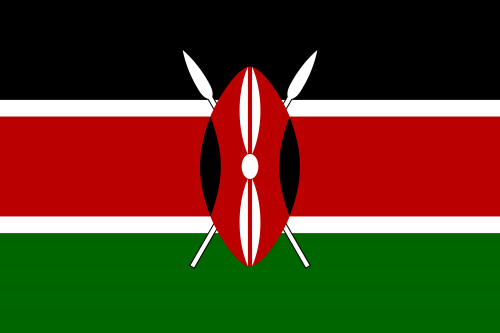

Visa Guides: Avoiding Scams and Unofficial Visa Application Websites
Navigating the world of visa applications can be daunting, particularly with the increasing prevalence of online scams. Many aspiring travelers find themselves entangled in complex procedures and tempting, but ultimately deceitful, online offers. This comprehensive guide provides valuable insights, helping you identify fraudulent websites and protect yourself from potential pitfalls in the visa application process. This guide will walk you through the crucial steps to identify legitimate visa channels, avoid common scams, and navigate the complexities of visa requirements with confidence. We will focus on the key elements of legitimate and official procedures, while highlighting the warning signs of unofficial websites and the risks they pose to your travel plans.
Identifying Official Visa Application Channels
Understanding Official Government Websites
The first crucial step in a secure visa application process involves precisely understanding official government channels. Visa application processes are meticulously designed procedures, governed by specific rules and regulations. Official websites, typically hosted by the relevant embassy or consulate, provide accurate and up-to-date information on visa requirements, application procedures, and necessary documents. A significant part of their authenticity is evident in their well-structured and organized layout, devoid of ambiguity or inconsistencies. For example, the official U.S. embassy website clearly outlines the requirements for student visas, elaborating on the specific documents and forms needed. It is essential to regularly consult these official websites for any required changes or updates, ensuring your application conforms to the latest guidelines. Official channels ensure that your application will be processed in a legitimate manner.
Scrutinizing Official Embassies and Consulates
Embassies and consulates play a pivotal role in processing visa applications for each respective country. The official representation for these entities holds significant authenticity and provides the exact regulations pertinent to visa applications. You should never rely on unverified sources to satisfy your visa needs; always confirm details directly with the official channels. Be aware of any discrepancies between information on unofficial platforms and official documentation. Contact your local embassy for verification or clarifications before proceeding with an application or any other significant step. This diligence guarantees your application accurately adheres to the regulations.
Recognizing Red Flags of Visa Scams
Understanding Common Scams Tactics
Visa application scams typically use compelling marketing strategies and tactics to entice potential victims. These scams often exploit the urgent needs of travelers, aiming to convince them to pay significant upfront fees or undergo unnecessary procedures. Beware of websites promising quick approvals or offering unrealistic guarantees—official visa processing involves evaluating applicants and can take substantial time. Be skeptical of websites demanding immediate payment without detailed service agreements or valid references. Always review and scrutinize every aspect of the agreement before proceeding. Beware of excessive pressure from vendors, agents, or individuals involved in the process.
Identifying Unreliable Websites and Agents
Recognizing unreliable websites is a crucial skill for protecting your financial well-being and time. Always verify if an agency or website is recognized by official government bodies. Check if the web address is safe and secure by carefully examining the URL. Scammers often create websites that mimic official government portals but possess subtle visual or textual discrepancies. Always compare information provided on unofficial sources with information available from official government channels.
The authenticity of a website can also be verified by examining the security certificates used. These certificates indicate the site’s reliability and security, providing a more legitimate and secure online experience. Look for contact information; a legitimate website will invariably have valid contact details. Verify the listed contact information with the official government websites.
Safeguarding Your Financial Information
Avoiding Unnecessary Fees and Payments
The visa application process shouldn’t involve substantial upfront payments. Legitimate embassies and consulates often require fees, but they are transparently outlined on official websites. Never pay exorbitant fees to secure a visa; these are definite red flags. Beware of anyone demanding upfront payments without clear explanations or contractual agreements. Look for details about payment options and processing times before making any commitments, especially when paying online. Always conduct a comprehensive background check of potential agents or service providers, ensuring they are not involved in fraudulent activities or are not suspected of any scams.
Protecting Your Personal Information
Protect your personal and financial information during the application process. Never share sensitive data with untrusted websites or individuals. Use strong passwords for online accounts, and be mindful of suspicious emails or messages. Avoid websites with poor security protocols. Ensure you’re on a secure website using HTTPS before entering any personal information.
Seeking Professional Advice and Support
The Importance of Professional Guidance
When unsure about any part of the visa application process, consulting a professional visa advisor can significantly increase the likelihood of a successful application. Official visa advisors are often familiar with the nuances and complexities of the visa process. They will help you navigate the often-confusing process, minimizing potential obstacles and ensuring a smoother application. They can also provide crucial insights into relevant regulations and updates, optimizing your chances of a positive outcome.
Leveraging Online Resources and Community Support
Leverage readily available resources such as government websites, official forums, and community groups to get insight and answer questions about visa processing. Engage with experienced travelers for advice and share information and experiences related to your visa applications. Participate in online groups dedicated to visa processing for better advice, solutions, and shared experiences. Online resources can sometimes provide helpful tips, warnings, and potential solutions to problems.
Ensuring a Smooth Visa Application Experience
Thorough Research and Preparation
Thoroughly researching the requirements and the procedure of the intended country will significantly aid your success. The process often includes collecting various documents, meeting deadlines, and complying with precise instructions. It is advisable to familiarize yourself with the specific guidelines for your intended travel destination, carefully reviewing the exact procedures for your particular case. Having detailed knowledge of the exact procedure significantly reduces potential complications during the application and the possibility of making errors.
Staying Informed and Adaptable
Stay updated about any changes or updates related to the visa requirements and procedures of the country you intend to visit. Always check official websites for the latest information or instructions. Be flexible and prepared to adapt to any changes in regulations that may arise throughout the process, optimizing your application for the most favorable outcome.
Additional Tips and Best Practices
Utilizing Official Resources
To further safeguard yourself from potential scams, always rely on official resources when seeking information about the visa application process. Use government websites, embassy websites, and other verifiable sources for information, ensuring accuracy and reducing potential errors or misunderstandings.
Keeping Records and Proof
Maintain complete records of all communications, documents, and payments associated with your visa application. This will prove useful if you encounter any issues or complications during the process, providing you with the necessary evidence for further assistance and confirmation.
Conclusion
Staying alert about the visa application process is vital. By diligently researching official channels, verifying websites, and proceeding with caution, you can steer clear of costly and time-consuming pitfalls. Prioritize legitimacy; seek professional assistance when necessary. Stay alert and enjoy your travels with confidence. Use the resources provided to ensure your visa application process is seamless and successful.
Frequently Asked Questions
How can I distinguish legitimate visa application websites from fraudulent ones?
Scrutinize the website’s design and content for any signs of unprofessionalism or inconsistencies. Look for official logos, contact information, and secure payment methods. Check for accreditation or affiliations with reputable government bodies. A legitimate visa application portal is usually well-structured, detailed, and provides clear instructions and available forms for download, avoiding ambiguity and vagueness. Always cross-reference information with official government websites. Be wary of websites with poor grammar, suspicious contact details, or unrealistic promises.
What are the common red flags of visa application scams?
Look out for overly-promising offers, unrealistic deadlines, requests for large upfront payments, unverified credentials of the application agents and high-pressure sales tactics. Be cautious of websites that demand immediate payment without providing a transparent service agreement or any prior information. Be skeptical of websites promising guaranteed visa approval—legitimate visa processing takes time and cannot be guaranteed. Contact official government channels if you encounter suspicious offers or demands for unusual payments.
Where can I find reliable information about visa requirements and processes?
Always check the official website of the embassy or consulate of the country you plan to visit. Consult government-approved websites and avoid relying on unofficial forums or social media posts for guidance. Additionally, consider consulting a professional visa advisor for tailored assistance, ensuring your understanding of the exact visa requirements and procedures.
In conclusion, safeguarding yourself from visa application scams is paramount for a smooth and legitimate travel experience. By diligently researching official channels, verifying websites, and proceeding with caution, you can avoid costly and time-consuming pitfalls. Remember to prioritize legitimacy and seek professional assistance when needed. Stay vigilant, do your research, and enjoy your travels with confidence! For more personalized guidance or if you suspect a fraudulent activity, reach out to your local embassy or consulate, or a trusted visa advisor for assistance. This guide should empower you to make informed decisions and protect yourself from visa scams. Use the resources provided to ensure your visa application process is seamless and successful.